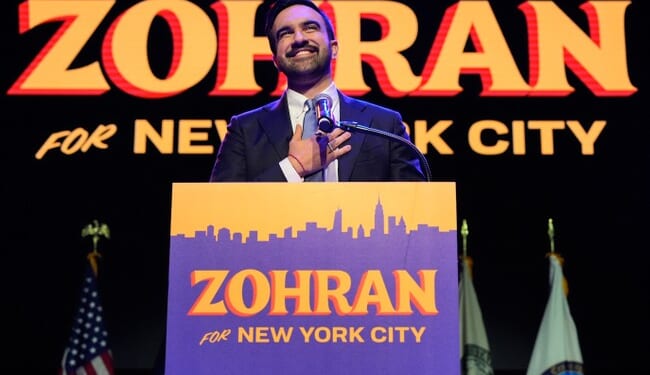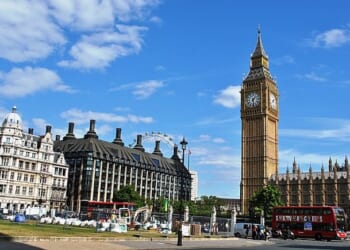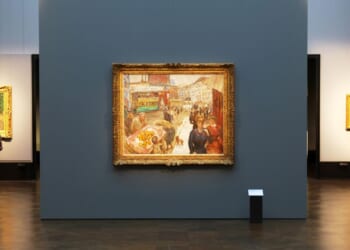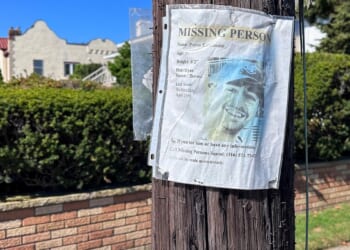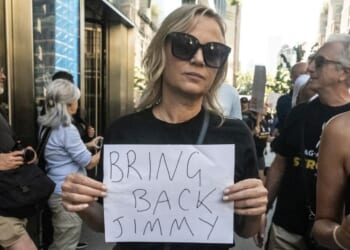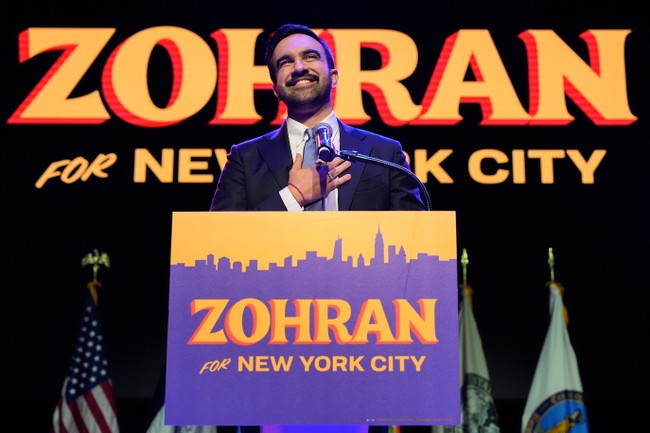
We used to believe mastery required apprenticeship, that greatness came only after failure and time. Now people achieve without either. Barack Obama entered the presidency as the least experienced man ever to hold the office. Zohran Mamdani, scarcely a decade out of college, is now mayor of New York City. Neither had endured the long road of trials that once forged capable leaders.
This isn’t about politics. It’s about process. Our culture rewards arrival but skips the journey. We crown heroes who never faced the dragon.
That pattern has filtered down to the youngest generation. Gen Z has grown up in a world where instant recognition seems normal: viral fame, overnight wealth, “influencer” careers with no apprenticeship. They see success as a state, not a progression. Yet the Hero’s Journey, the oldest map of human growth, insists that suffering is not a glitch in the system but the system itself.
We are producing adults who want the return without the initiation, applause without the ordeal. The result is a generation rich in ambition but poor in resilience, eager to be heroes but afraid of the journey.
The Hero’s Journey: The Map of Growing Up
Every culture tells some version of the Hero’s Journey because it mirrors what every person must do to become an adult: leave safety, face hardship, return changed.
In myth, the hero departs from home and encounters trials that test courage, endurance, and humility. In life, this means learning to work, fail, and recover, mastering oneself before mastering the world. The ordeals are what separate innocence from maturity.
Modern culture, however, treats discomfort as harm. Schools smooth the edges, parents shield from risk, employers cater to fragility. The road of trials has been paved over. Without struggle, no real transformation occurs, only performance.
Growing up still requires the same three stages: departure, initiation, and return. We have forgotten that the middle part, the suffering, is the point.
The Death by “Meta-Narrative”
Postmodernism, starting in the 1960s, taught that great stories — religion, heroism, even the concept of growing up — were just “meta-narratives,” myths societies invented to justify power. Once that idea took root, the Hero’s Journey was dismissed as propaganda encouraging “unnecessary” discipline and sacrifice. It was a way to control the masses. If all truth is relative, there is no reason to suffer for it.
That message found fertile ground in a prosperous age. Comfort makes skepticism easy. When upscale food, shelter, and status can be simulated online, hardship seems optional. We can look successful without being competent, pose as wise without experience, perform courage without risk. Prosperity that was once the reward for hard work now funds illusion.
Young people are not to blame for choosing this path; it is the one their elders built for them. We handed them technology that grants visibility before mastery, wealth before wisdom, and applause before accomplishment. They are following the map our culture drew, a world where the road of trials has been replaced by a shortcut to the trophy room.
The more often success is achieved without struggle, the thinner that success becomes. We are minting titles, influencers, and leaders at a record pace, and genuine achievement at historic lows. A civilization that forgets the necessity of the middle begins to rot from the inside out.
The Storytelling Animal
Jonathan Gottschall, in The Storytelling Animal, argues that humans are wired for story. Narrative isn’t a cultural ornament; it’s how the brain organizes reality. We turn chaos into sequence, conflict into purpose. Our minds insist on meaning and structure in a chaotic world. We need the Hero’s Journey because it mirrors the way consciousness matures.
This is why the postmodern dismissal of truth as illusion is so destructive. The mind cannot live without a through-line. When we deny objective meaning, the need doesn’t disappear; it mutates. Instead of seeking truth, people construct identities. They perform coherence. Story becomes branding, not belief.
Gottschall’s insight explains why even in a cynical age, the same mythic pattern keeps resurfacing in pop culture. We hunger for it. The Hero’s Journey is how the psyche metabolizes experience: departure, ordeal, and return. Strip away the ordeal, and the story — and the self — collapse into fragments.
Our young are not just starved for struggle; they are starved for truth. Illusion can flatter the ego, but it cannot forge the soul. A culture that replaces pilgrimage with performance leaves its children with only one possible quest: to be seen, not to become.
The Broken Journey: From Pilgrimage to Performance
When truth is replaced by illusion, the journey becomes theater. The old pilgrimage, a test of endurance and faith, has become a performance for an audience. The self is no longer tempered; it is curated.
This is the logic of performative individualism: identity as art project, struggle as content, life as perpetual debut. Social media is its natural home, a stage where the hero never leaves the first act. The call to adventure is a hashtag, the ordeal a confessional post, the return a sponsorship deal. It is not transformation but attention that marks success. A completed story means no more rewards, whether that is money or attention. This means that, like a soap opera, the performance never ends. (Think Greta Thunberg.)
Our prosperity makes the illusion sustainable. We can simulate achievement indefinitely: degrees without learning, titles without expertise, activism without sacrifice. As I wrote a few days ago, young people want to be writers without having written. The old moral order demanded proof through action; the new one demands optics.
But when everyone performs, no one becomes. The journey stalls. The virtues that once held civilizations together — courage, restraint, loyalty, perseverance — have no stage presence, and so they vanish from the script.
What remains is a hollow self, famous for being visible and starving for meaning: a generation trying to live mythically in a culture that no longer believes in truth.
The Consequences: A Culture That Never Grows Up
When a civilization learns to fake achievement, it forgets how to grow. The road of trials, the part that teaches endurance, humility, and skill, has been replaced by comfort, and comfort produces fragility.
This didn’t begin with Gen Z. It started with their parents, the first generation raised to believe self-esteem mattered more than competence. They were told effort was oppressive, competition unfair, and failure traumatic. Their children simply inherited the logic in its final form: risk is dangerous, struggle optional, success a right.
Our prosperity made it possible to keep the illusion going. Technology amplified it. We could create the appearance of mastery without any real mastery at all: degrees without knowledge, titles without skill, causes without cost.
But abundance without effort hollows a people. Civilizational virtues die when nothing requires them. The result is not one broken generation but a slow collapse of adulthood itself. We have abundance, comfort, and infinite distraction, everything except the moral muscle that growth demands.
Exclusively for our VIPs: Slaying the Dragon: How a Child Found Courage
The Way Back: Restoring the Rite of Trials
The cure is not outrage but restoration. We must rebuild the middle of the journey, the part that hurts, the part that forms.
The good news is that many already sense this. Gen X remembers what struggle taught them, and Gen Z, despite being raised amid illusion, seems to know something essential is missing. You can see it in their hunger for authenticity, and in their return to trades, faith, and physicality. They want reality back.
Our task is to guide that instinct rather than smother it. Children must be allowed to fail; young adults must be allowed to struggle. Pain teaches proportion, and repetition builds competence. Apprenticeship, mentorship, and real work must return to the center of education and life.
We also need a moral vocabulary that praises endurance more than ease. Civilization endures when it honors those who persist, not those who posture. The hero’s journey begins with freedom but ends with duty. To reclaim adulthood, we must restore both halves.
Comfort is not the goal of life. Becoming is. If Gen X can remember that and Gen Z can rediscover it, the road of trials may yet reopen, and the journey can begin again.
The Journey Restored
The Hero’s Journey endures because it tells the truth about what it means to be human. No civilization can long survive without that truth. We grow only through effort, and we find meaning only by walking through pain toward purpose.
We have spent a generation trying to skip the middle, though the impulse began half a century ago when comfort and theory first conspired to make struggle seem unnecessary. It hasn’t worked. The result is visible everywhere: anxiety, fragility, disillusionment, and a desperate search for authenticity.
Yet the pattern still waits. It always does. Each generation rediscovers it when illusions collapse. The young who reject the curated life and choose the real one are already answering the call to adventure. Those of us who remember the map owe them guidance, not scorn.
The way home is the same as it has always been: leave comfort, face truth, suffer well, return changed. We need to rediscover the fulfillment and meaning we once found in hard work, to take joy in doing things that are difficult and real. And we need our children to actually leave home, to test themselves, to find out who they are apart from their families and our protection. The Hero’s Journey is not a myth to outgrow but a discipline to reclaim the lifelong art of becoming fully human.
Editor’s Note: Help us continue to expose the truth about our culture today and look for ways to fix it. Take advantage of our Schumer Shutdown Sale while it lasts — use the promo code POTUS47 to get 74% off your annual VIP membership. Enjoy full access to our site and comments section while you help us fulfill our mission!

